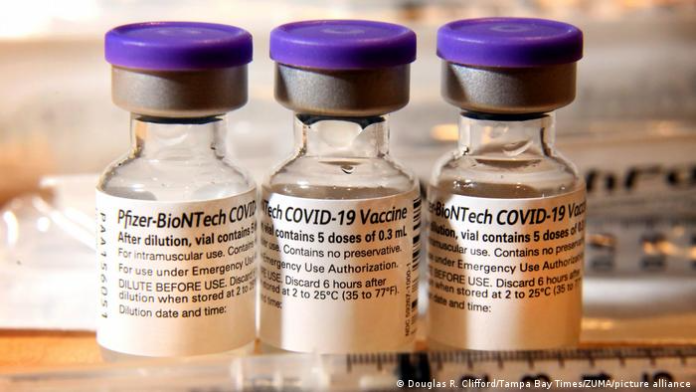Does the Pfizer-BioNTech COVID-19 vaccine cause myocarditis?
Just recently cases of mild inflammation surfaced in young adults receiving the COVID-19 vaccine. Although, most of them recovered with minimal treatment and rest. Researchers in Israel are studying these rare cases and have found a possible link between myocarditis in young men between the ages of 16 to 30 years and the Pfizer-BioNTech COVID-19 vaccine. The study showed that 1 in 50,000 men who were administered the COVID-19 vaccine experienced the side effect.
Myocarditis is an inflammation of the heart muscles that can affect the heart’s electrical system, reducing its ability to pump. As a result, it causes rapid or abnormal heart rhythms. Myocarditis is usually caused because of viral infections but it can also be as a reaction to a drug and even vaccines. The side effect is alarming because severe myocarditis can weaken the hear muscles, leading to stroke and heart attacks.
Currently the data available is not adequate enough to prove that the heart inflammation in these individuals is a side effect of the vaccine.
According to experts, there are a number of reasons a definitive link has not been established, yet. Similarly, most of the cases reported have been mild and responsive to anti-inflammatory medications, for example, steroids. At this point the benefits of the vaccine outweigh the risks. Especially at a time when there has been a significant increase in the number of hospitalisations this year.
The Israeli report led by Dr. Dror Mevorach, head of internal medicine at Hadassah Medical Center in Jerusalem found more than 110 cases of myocarditis in vaccinated individuals. The cases occurred mostly after the second dose and majority who developed the inflammation was young men. According to literature, younger men are more likely to develop myocarditis compared to young women.
Data from the hospital also showed that 25 times more cases of myocarditis were seen compared to previous years. However, the breakdown of the number of cases was not included in the report. Pfizer responded to the report saying that they were aware of the findings and found no casual link between the vaccine and myocarditis. Determining the link between the vaccine and myocarditis is also difficult because the actual rate of the condition is unclear in the general population. Doctors assume that there are 2 to 3 cases per 100,000 in a year. Although it could be higher because most cases go unreported. This makes it difficult to say that the number of cases have truly increased.
What’s more, myocarditis is usually caused because of viruses called enteroviruses. And the number of cases considerably increase during summer months, making it difficult to establish whether the increase in cases is linked with the COVID-19 vaccine.
References
Is the COVID-19 vaccine causing rare myocarditis cases? https://www.livescience.com/covid-19-vaccine-myocarditis-teens-report.html




